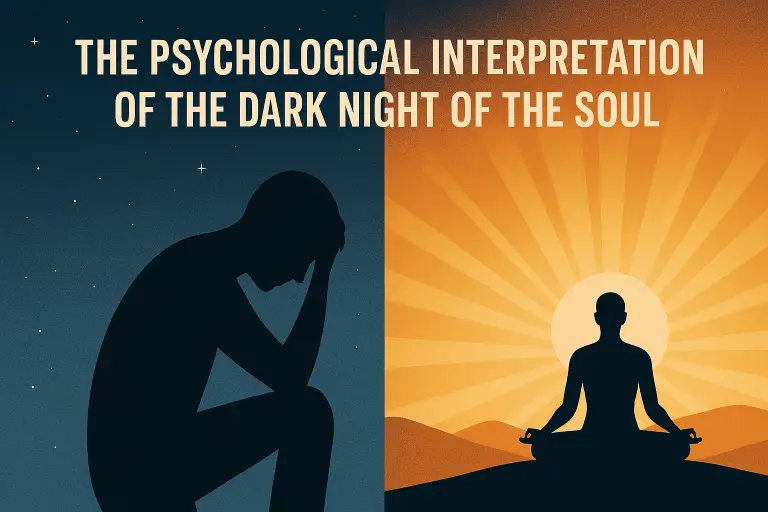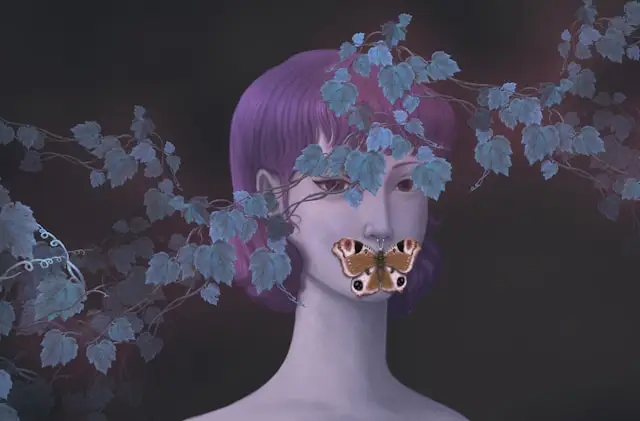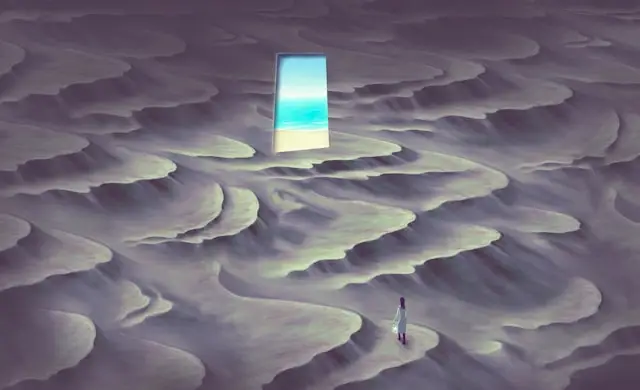The dark night of the soul may be why people feel lost, stuck, or disconnected. It isn’t just a spiritual crisis—it can be a powerful psychological turning point. Discover how moments of despair can lead to deep personal growth, spiritual awakening, and renewed clarity.
We often think of the “Dark Night of the Soul” as a spiritual crisis—a time of despair and disconnection from the divine. But there’s another, equally important way to understand this experience: through the lens of psychology and personal development.
This isn’t just about mysticism; it’s about human transformation. And if you’ve ever felt completely lost, overwhelmed, or unsure of who you are, you may have already been through your own version of it.
Beyond the Spiritual: A Metaphor for Deep Personal Change
While the term Dark Night of the Soul originates with the 16th-century Christian mystic St John of the Cross, modern psychology has found its own language for similar experiences. Carl Jung, the Swiss psychiatrist and pioneer of analytical psychology, explored this terrain through concepts like the shadow and individuation.
For Jung, we each carry a “shadow”—a part of ourselves we tend to repress or deny. These are the uncomfortable truths, the messy emotions, the parts we’d rather not look at. Yet, true healing and growth come not from avoiding the shadow, but from facing it head-on. Jung called this process individuation—the journey of becoming whole by integrating all aspects of the self, light and dark alike.
In this light, the Dark Night isn’t just a breakdown; it’s a breakthrough in disguise.
When Life Pulls the Rug Out
In psychological terms, a Dark Night of the Soul can feel like an existential crisis. It’s that moment when life suddenly stops making sense. You feel untethered, unsure of who you are or what you believe. Your old ways of thinking, being, or relating to the world no longer fit—but the new ones haven’t arrived yet.
Some common triggers include:
- Major life changes – such as the death of a loved one, a divorce, or a sudden job loss
- Emotional upheaval – particularly after trauma, burnout, or intense periods of stress
- Spiritual or philosophical disillusionment – where a long-held belief system begins to crumble
- The slow unravelling of a former identity – for example, when you realise you’re no longer the person you used to be, and you’re not yet sure who you’re becoming
It’s a tough place to be. You might feel depressed, anxious, numb—or all three at once. There’s often a sense of isolation, like no one else could possibly understand what you’re going through.
But here’s the thing: this darkness has a purpose.
The Paradox of Awakening: When Enlightenment Leads to Darkness
One of the more surprising insights from both spiritual and psychological traditions is that a spiritual awakening—something many people seek—can actually lead to a Dark Night of the Soul.
That might sound counterintuitive. After all, isn’t awakening supposed to bring peace, joy, and clarity?
Well, yes—and no.
Moments of awakening often bring sudden insight, expanded awareness, or a deep sense of connection with something greater. But this shift in consciousness can also shatter the ego’s carefully constructed identity. Suddenly, everything that once felt solid—your beliefs, goals, social roles, even your sense of self—starts to fall away.
In that space, people often experience:
- A loss of meaning – because the old meanings no longer apply
- Emotional turmoil – as buried fears and unresolved wounds rise to the surface
- Isolation – because few people around you understand what you’re going through
- A longing to return to the familiar – even if it no longer fits
What follows can feel like a descent into darkness—but it’s a necessary one. The old self is dissolving to make space for something more authentic and aligned. In this sense, the Dark Night is not a sign that something’s gone wrong, but a deep inner cleansing that often comes after spiritual insight.
As mystics across traditions have said: First the ecstasy, then the laundry.
The Hidden Invitation
Rather than something to be avoided, the Dark Night of the Soul can be seen as an invitation. It’s a call to go within—to face what’s been hidden, to question what’s been assumed, and to let go of what no longer serves.
In practical terms, this might mean:
- Letting go of old stories about who you’re supposed to be
- Allowing space for grief—not just for people or events, but for identities and dreams that are no longer viable
- Being honest with yourself about what’s not working, even if that honesty is painful
- Re-evaluating your values and re-aligning your life with what really matters
It’s not an easy process. In fact, it can feel like everything is falling apart. But often, it’s in this falling apart that something deeper and more authentic can emerge.
From Breakdown to Breakthrough
While the Dark Night can feel like a psychological low point, many who go through it eventually describe it as a turning point. With time, patience, and support, the darkness gives way to clarity. What once felt like an ending becomes a beginning—a chance to live more consciously, more truthfully, and more fully.
You may not return to your old life, but you will come back to yourself. That, perhaps, is the real gift of the Dark Night: a homecoming to who you truly are beneath all the noise, roles, and expectations.
Final Thoughts – The Dark Night of the Soul
If you’re in the midst of a Dark Night right now, know this: you’re not broken, and you’re not alone. What you’re experiencing is a deeply human process—one that many have walked through before you. And while it may not feel like it yet, this darkness can be the fertile ground for real transformation.
Take it one step at a time. Be gentle with yourself. And remember: even the longest night eventually gives way to dawn.
Extra Resources
You might find this post interesting: Understanding the Journey of the Soul
Ready to find your inner calm? Go here to start your journey.
Why not treat yourself to a Mindfulness Retreat or a Meditation Retreat in the beautiful Devon countryside?
Where are you in your soul journey?
Best Wishes,
David.
© D. R. Durham, All rights reserved, 2025.




